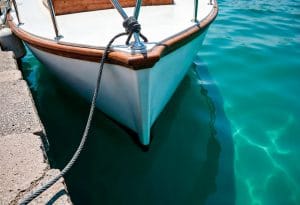In Spain, as in any other country, there is an area of waters that belong to its sovereignty, known as territorial waters. These waters are often the subject of disputes and misunderstandings, so it is important to understand their definition and regulation in order to avoid problems.
In this article, we will discuss what territorial waters are in Spain, how they are defined and regulated, and what implications they have for fishing, navigation and resource exploitation.
What are territorial waters in Spain?
Territorial waters are an area of sea that is under the sovereignty of a state, and that extends from its coast to a certain distance. In the case of Spain, This distance is 12 nautical miles (about 22.2 kilometers) from the baseline, which is the line that joins the most prominent points of the coast and the islands that belong to Spanish territory.
It is important to note that territorial waters are different from the exclusive economic zone (EEZ), which extends up to 200 nautical miles (about 370.4 kilometers) from the baseline and in which the state has certain rights to exploit natural resources, such as fishing and mining.
Are you interested in: What are International Waters?
How are territorial waters defined and regulated in Spain?
In Spain, the definition and regulation of territorial waters is governed by the Water Act of 1985 and by the United Nations Convention on the Law of the Sea (UNCLOS), of which Spain is a signatory.
The Water Law establishes that territorial waters are an integral part of Spanish territory, and that the Spanish state has full sovereignty over them, which means that it has the exclusive right to exploit and use their natural resources.
Furthermore, the law establishes that any activity carried out in territorial waters must be authorized by the competent authorities.
UNCLOS, for its part, establishes that territorial waters are an extension of the land, and that the coastal state has the right to establish laws and regulations for their use and exploitation. It also establishes that foreign ships have the right of innocent passage through territorial waters, that is, the right to transit through them without carrying out activities that harm the coastal state.
What legislation applies to territorial waters?
The legislation applicable to territorial waters is a relevant issue that cannot be overlooked. In Spain, the legislation governing territorial waters is Royal Legislative Decree 2/2011, of 5 September, approving the Revised Text of the Law on State Ports and the Merchant Navy.
This text establishes that territorial waters are those that extend from the baseline to a distance of 12 nautical miles, that is, approximately 22.2 kilometers, measured from the coast. Within these waters, Spain exercises its sovereignty and has exclusive jurisdiction over matters of police, security, defence, immigration, customs, among others.
Besides, It is important to note that the Coastal Law of 1988, amended by Law 2/2013, of May 29, on the protection and sustainable use of the coastline and the amendment of the Coastal Law, establishes that the maritime-terrestrial public domain is the set of public domain assets that belong to the State and that are subject to the specific legal regime established in said law.
In this sense, territorial waters form part of the maritime-terrestrial public domain and their use is subject to the authorization and regulation of the competent authorities. Likewise, there are various laws and regulations that regulate activity in these waters, such as the Maritime Navigation Law, the Water Law, the Maritime Fishing Law and the Nature Conservation Law, among others.
In summary, the legislation applicable to territorial waters in Spain is regulated by Royal Legislative Decree 2/2011, the Coastal Law of 1988 and its amendments, as well as by other specific laws and regulations that establish the rules and regulations for the use and protection of these waters.
Are you interested in: What is the IMO and what is its mission?
What implications do territorial waters have for fishing, navigation and resource exploitation?
Territorial waters have important implications for a variety of activities, including fishing, navigation and resource exploitation. Some of these implications are outlined below:
- Fishing: Territorial waters are an important source of fishery resources, so their exploitation is regulated by various rules and regulations that seek to guarantee the sustainability of resources and the protection of the marine environment. In this regard, the competent authorities establish measures for the control and management of fishing, such as determining the species that can be captured, minimum catch sizes and closed seasons, among others.
- Navigation: Territorial waters are an important maritime communication route, so their use is subject to specific regulations that seek to guarantee the safety of navigation and the protection of the environment. In this regard, there are various rules and regulations that establish the conditions and requirements for navigation in these waters, such as the obligation to carry certain safety equipment on board, the limitation of navigation speed, maritime signaling and the obligation to respect the exclusion zones established to protect marine fauna and flora.
- Exploitation of resources: Territorial waters are also an important source of natural resources, such as hydrocarbons, minerals, and wind and wave energy. Their exploitation requires prior authorization from the competent authorities, which establish the conditions and requirements for their extraction and exploitation. Measures are also established to guarantee the protection of the marine environment and the sustainability of resources.




